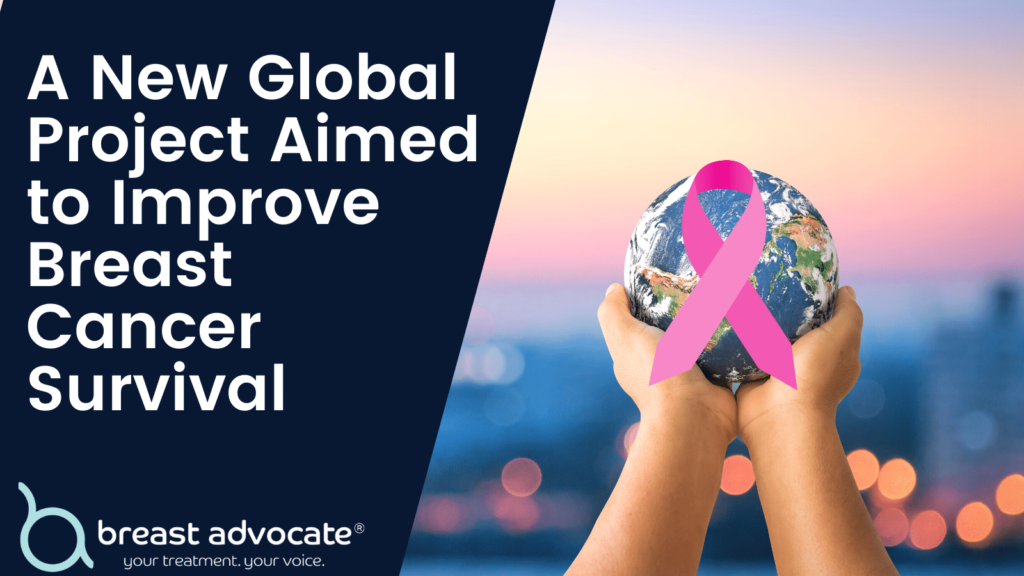WHO Global Initiative Aims To Improve Breast Cancer Survival

For patients diagnosed with breast cancer, the 5-year survival rate is above 80% in most “wealthy” countries. Unfortunately, not all countries can boast such statistics. Likewise, even in higher-income countries there are still areas of underserved communities with much lower survival rates.
The World Health Organization (WHO) has announced a new campaign to help improve survival rates in underserved areas. The campaign is called the Global Breast Cancer Initiative. The goal is to reduce breast cancer mortality by 2.5% per year until 2040. These efforts could save the lives of up to 2.5 million people!
The global effort comes at a crucial time. Breast cancer now outranks lung cancer as the world’s most common type of cancer, and is responsible for 1 in every 6 cancer deaths in women.
Breast Cancer Initiative key elements
The Global Breast Cancer Initiative will be comprised of three elements: health promotion, timely diagnosis and treatment, and supportive care.
Health promotions will drive campaigns focused on public education to identify the early signs of breast cancer. Another key focus will be educating the public on lifestyle changes that could reduce their risk of developing breast cancer.
The push for timely diagnosis and treatment will require local government officials and their healthcare providers to address local needs and develop plans of action to provide better patient care. This includes access to surgery, chemotherapy, radiation treatments and pain management services.
“An evidence-based technical package will be provided to countries, linked to online learning platforms and other types of support, and rolled out over the next year. The package will incorporate existing WHO cancer tools and products to promote an integrated approach across cancers and to strengthen health systems more broadly,” shared the WHO when discussing the strategy behind the new campaign.
This campaign will hopefully reach the lives of many women and men across the globe. The importance of education as well as access to breast cancer care and patient support are crucial in making a global impact and saving lives. We applaud this incredibly important initiative and look forward to seeing its efforts come to fruition!
WHO Increases Worldwide Access To Life-saving Breast Cancer Treatment
Last month the World Health Organization (WHO) announced the approval of a “biosimilar” Trastuzumab to help make breast cancer treatment more affordable for patients globally.
Biosimilar drugs are derived from living sources rather than chemicals. Biosimilars are approved according to the same pharmaceutical quality standards that apply to all medicines.
The WHO shared in their statement that the drug Trastuzumab, a monoclonal antibody, is an essential treatment for about 20% of breast cancers. It has shown high efficacy in curing early stage breast cancer and even some cases of more advanced disease. However, the average cost of the drug is around $20,000 a year making it difficult for most patients around the world to afford the treatment. The WHO-approved biosimilar version of the drug has the same effectiveness but costs about 65% less. This major cost difference gives hope to many seeking affordable access to treatment. Previously, other biosimilar versions of Trastuzumab have come to market, but none have passed qualification standards set forth by the WHO.
“WHO prequalification of biosimilar trastuzumab is good news for women everywhere,” said WHO director general Dr. Tedros Adhanom Ghebreyesus. “Effective, affordable breast cancer treatment should be a right for all women, not the privilege of a few,” he added.
“We need to act now and try to avoid more preventable deaths,” said WHO assistant director general for medicines and health products Dr Mariângela Simão. “The availability of biosimilars has decreased prices, making even innovative treatments more affordable and hopefully available to more people.”






